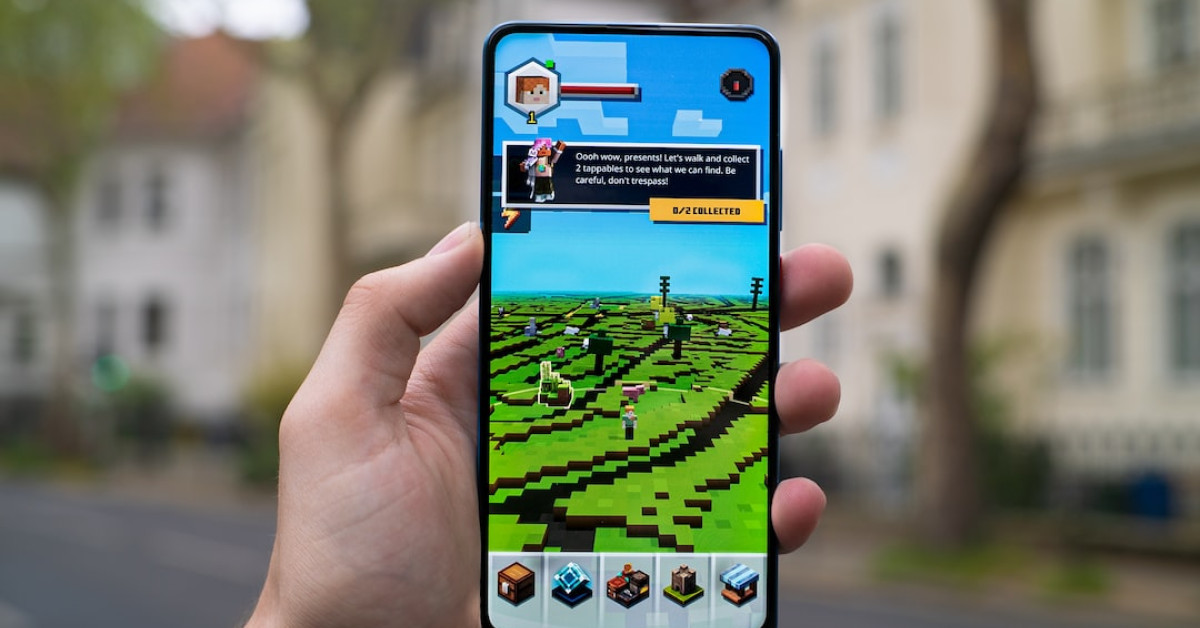Welcome to the captivating world of Minecraft where creativity merges with endless possibilities, captivating millions of players globally. Among the countless components within this virtual sandbox, the Minecraft observer stands as a cornerstone in creating ingenious contraptions, elevating gameplay to unprecedented heights. If you’re looking to enhance your Minecraft experience, mastering the Minecraft observer recipe is an invaluable skill that will refine your architectural prowess and bring your intricate inventions to life. Armed with the knowledge of crafting and utilizing the observer block, you’ll not only enhance your builds but also enjoy the game with a sense of mastery and pride. In this comprehensive article, we’re delving into the heart of the Minecraft observer crafting process, providing you with step-by-step instructions, expert tips, and insights to ensure your standing as a seasoned Minecraft architect. Prepare to unravel the secrets and wield the observer block like never before!
Understanding the Essentials of the Minecraft Observer
What is an Observer in Minecraft?
Before we dive into crafting intricacies, let’s establish a clear understanding of what an observer is. In the realm of Minecraft, the observer serves as a block update detector (BUD) that monitors changes in the state of adjacent blocks. Whether a block is placed, broken, or an alteration occurs within its physical state, the observer is designed to detect such variations and emit a redstone signal in response. This functionality is invaluable for automating processes, creating traps, or intricate redstone contraptions.
Why is the Observer a Game-Changer?
Using an observer can take your Minecraft builds from ordinary to extraordinary. It allows for:
- Automated farming: Set up plant growth and harvesting systems without manual intervention.
- Security systems: Create intricate traps or alert mechanisms to safeguard your Minecraft domain.
- Complex machinery: Engineer doors, bridges, and other devices that react to environmental changes.
The Minecraft Observer Recipe: A Step-by-Step Guide
Crafting an observer in Minecraft is a straightforward process that requires specific materials and a little know-how. You’ll need to gather the following items: ordway beauty and the beast showtimes
- 2 Redstone Dust: This powder serves as the wiring for transmitting power within your redstone contraptions.
- 6 Cobblestone Blocks: One of the most common resources, these provide the observer’s structure.
- 1 Nether Quartz: This mineral, found in the Nether, is essential for the observer’s detection mechanism.
Crafting the Observer: Detailed Instructions
Upon securing the necessary materials, follow these steps to create your Minecraft ocardi b dip recipeserver:
- Open the Crafting Table: Right-click on your crafting table to bring up the 3x3 crafting grid.
- Placement of Ingredients:
- Place two redstone dust in the middle column of the grid, with one at the bottom and one in the center.
- Situate the nether quartz in the top-middle slot.
- Surround the remaining slots with cobblestone blocks, filling the first and third columns as well as the top and bottom of the middle column.
Once the ingredients are correctly positioned, the observer block will appear, ready to be added to your inventory and utilized in your Minecraft world.
Top Strategies for Leveraging Your Minecraft Observer
Optimizing Your Creations with the Observer Block
Minecraft offers a plethora of opportunities for innovation. By integrating observer blocks into your designs, you can achieve levels of automation and complexity that set your creations apart. Here are some strategies for maximizing the potential of observers:
- Timing Devices: Craft clocks or timers that can regulate the operation of other redstone contraptions.
- Feedback Loops: Design systems that rely on continuous updates from observer blocks to maintain operation.
- Intricate Signaling Networks: Establish communication lines within your build, with observers acting as the central informants.
Expert Tips for Observer Placement and Usage
Placement and orientation are crucial when dealing with observer blocks. Here are some key tips to ensure their effectiveness:
- Observers detect changes in front of their “face” — the side with the red dot.
- The power signal is emitted from the rear — opposite the face.
- Observer blocks can be used in a chain to transmit signals over longer distances.
The Efficiency of Observers in Redstone Contraptions
Maximizing Redstone Signal Strength with Observers
When it comes to redstone, signal strength can mean the difference between a functional device and a static construct. Observers ensure that the signal emitted is at full strength (15), allowing for the activation of connected devices without degradation.
The Role of Observers in Compact Builds
Space often comes at a premium, especially when you’re working on intricate machinery. Observers shine in these scenarios, playing a pivotal role in the creation of compact, space-efficient designs due to their ability to detect and react without additional components like pistons or redstone torches.
Pros and Cons: Comparing Observers with Traditional Redstone Components
To fully grasp the benefit of the observer block, it’s beneficial to compare it with traditional redstone components such as repeaters and pistons. Here’s a quick chart to illustrate the advantages and disadvantages:
| Feature | Observer Block | Traditional Redstone Components |
|---|---|---|
| Signal Strength | Emits full strength signals | May require repeaters to maintain signal strength |
| Detection Range | Only adjacent blocks | Can be extended with additional components |
| Response Time | Instantaneous | May have delay based on component |
| Space Efficiency | Extremely compact | Often requires additional space |
| Versatility | Primarily detection oriented | More suitable for a variety of tasks |
Deciding When to Use Observers in Your Build
When to use an observer versus other redstone components is a question of efficiency, space, and the specific function required. Observers are ideal for when instant detection and reaction are necessary, whereas traditional components may better serve in scenarios where timing and extensive coverage matter more.
Design Variations: Minecraft Observer in Different Contexts
Adapting the Observer for Various Redstone Machines
Each redstone machine you build in Minecraft has its unique requirements. The observer can be adapted to serve purposes such as:
- Pulse Generators: Creating short redstone signals for timed operations.
- Randomizers: Contributing to circuits that rely on random output for games or decision-making tools.
Crafting Advanced Systems with Multiple Observers
For advanced redstone engineers, combining multiple observers can lead to the creation of sophisticated systems. Arrays of observers can form the backbone of:
- Self-constructing bridges: Allowing for safe passage across hazardous terrains.
- Automatic storage systems: Sorting and organizing items with minimal player input.
Incorporating Observers into Creative Builds
Beyond functionality, observers can also enhance the aesthetic of your Minecraft world. Envision a lighthouse that activates at dusk or an interactive floor that lights up as you walk — these are just a couple of examples where observers can add a dynamic element to your creations.
The Future of Minecraft Observer Creations
As Minecraft continues to evolve, so do the possibilities for using observer blocks in innovative ways. Anticipate future updates that could introduce new blocks or mechanics that synergize with the observer, further expanding your creative arsenal.
Leveraging Community Knowledge and Creations
The Minecraft community is renowned for sharing knowledge and cutting-edge designs. Tapping into community resources, you’ll find a wealth of inspiration and guidance for utilizing observers in ways you may not have considered.
Final Thoughts: Becoming a Master of the Minecraft Observer
In conclusion, mastering the Minecraft observer recipe opens doors to a new dimension of gameplay, offering the ability to automate, innovate, and astonish. Whether you’re a beginner or a seasoned veteran, the skills you accumulate from working with observers will undoubtedly leave a lasting mark on your Minecraft adventures. With the knowledge, tips, and tricks provided in this comprehensive guide, you’re armed and ready to conquer the observer challenge. It’s time to wield this powerful block with confidence and creativity, paving your way to becoming a true Minecraft pro.









